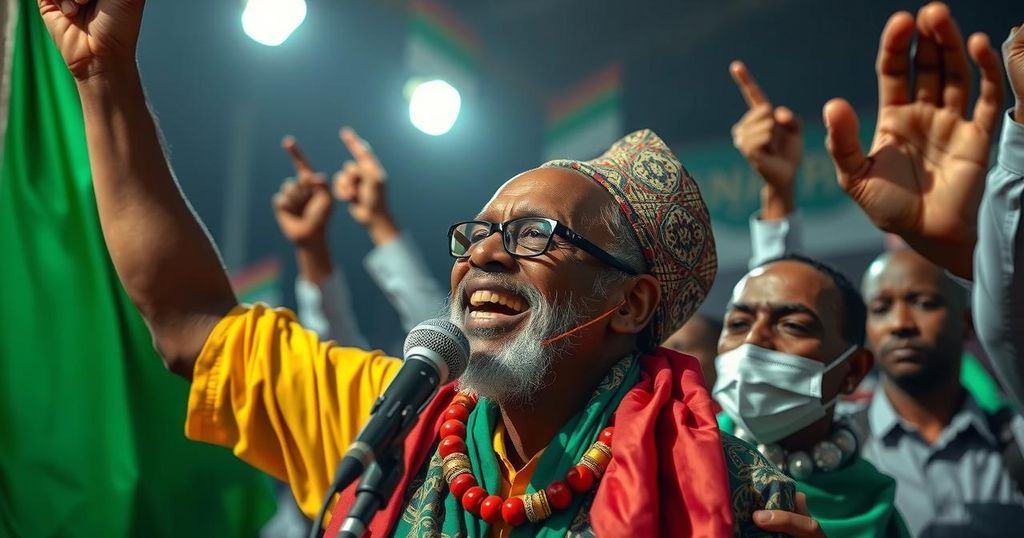World news
2024 ELECTIONS, ABD, ABDIRAHMAN ALEELI, ABDIRAHMAN MOHAMED ABDULLAHI, AFRICA, COMMISSION, ELECTIONS, ETHIOPIA, GOVERNANCE, HARGEISA, INDIAN OCEAN, KULMIYE PARTY, MOGADISHU, MUSE BIHI ABDI, POLITICS, PRESIDENTIAL ELECTION, SOMALIA, SOMALILAND, VOTER TURNOUT, WADDANI PARTY
Sofia Rodriguez
0 Comments
Abdirahman Mohamed Abdullahi Wins Somaliland Presidential Election
Abdirahman Mohamed Abdullahi, leader of the opposition Waddani Party, won Somaliland’s presidential election on November 13, 2024, securing over 50% of the votes. Incumbent President Muse Bihi Abdi received just over 30%. Delayed elections since 2022 reflect ongoing challenges in Somaliland, which declared independence in 1991 yet lacks international recognition. The region’s relationship with Ethiopia has further complicated its political status.
In the recent presidential elections held on November 13, 2024, Abdirahman Mohamed Abdullahi, the opposition leader from the Waddani Party, emerged victorious in Somaliland, securing over 50% of the votes. This result signifies a notable shift in the political landscape, particularly against the incumbent President Muse Bihi Abdi of the ruling Kulmiye Party, who garnered just above 30% of the votes. The election, which faced delays due to funding issues and logistical challenges since 2022, marks Somaliland’s continued efforts to establish a stable governance model distinct from the ongoing turmoil in Somalia. Somaliland, which unilaterally declared independence from Somalia in 1991, has maintained its own governmental institutions, currency, and security mechanisms, despite the lack of international recognition. This breakaway region has fostered a relatively stable political environment, contrasting sharply with the strife that characterizes the rest of Somalia. Recent agreements between Somaliland and Ethiopia, permitting the former access to the Indian Ocean in return for potential recognition, have also intensified regional political tensions due to Somalia’s concerns over its territorial sovereignty. The successful conduct of the elections amidst these complex dynamics not only underscores the resilience of Somaliland’s democratic processes but also highlights the ongoing challenges that the region faces in its interactions with Somalia and external actors such as Ethiopia. The results of this election are expected to influence future engagements and negotiations as Somaliland continues to pursue broader international recognition and legitimacy.
Somaliland declared its independence from Somalia in 1991 following a period of conflict, establishing a separate government that includes its own currency and security forces. Despite its self-governance, Somaliland remains unrecognized by the international community, complicating its diplomatic and economic pursuits. The region has successfully conducted several elections, demonstrating a commitment to democratic principles. However, recent political agreements with neighboring Ethiopia have provoked tensions with Somalia, raising questions about sovereignty and recognition in the Horn of Africa.
The election victory of Abdirahman Mohamed Abdullahi signals a pivotal moment for Somaliland as it showcases the region’s commitment to democratic governance and the potential for future political developments. As Somaliland navigates its complex relationship with Somalia and Ethiopia, the results may further influence its aspirations for international recognition and stability in the region. This electoral outcome could herald new political dynamics that reshape the landscape of Somaliland’s governance and its interactions on the international stage.
Original Source: apnews.com




Post Comment